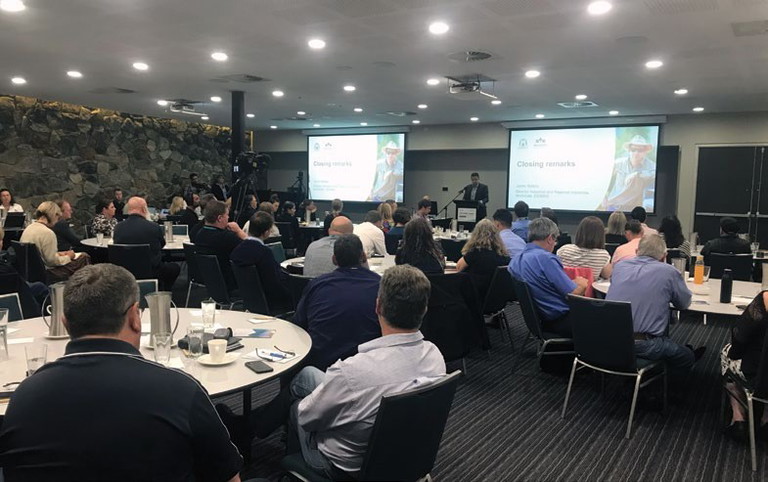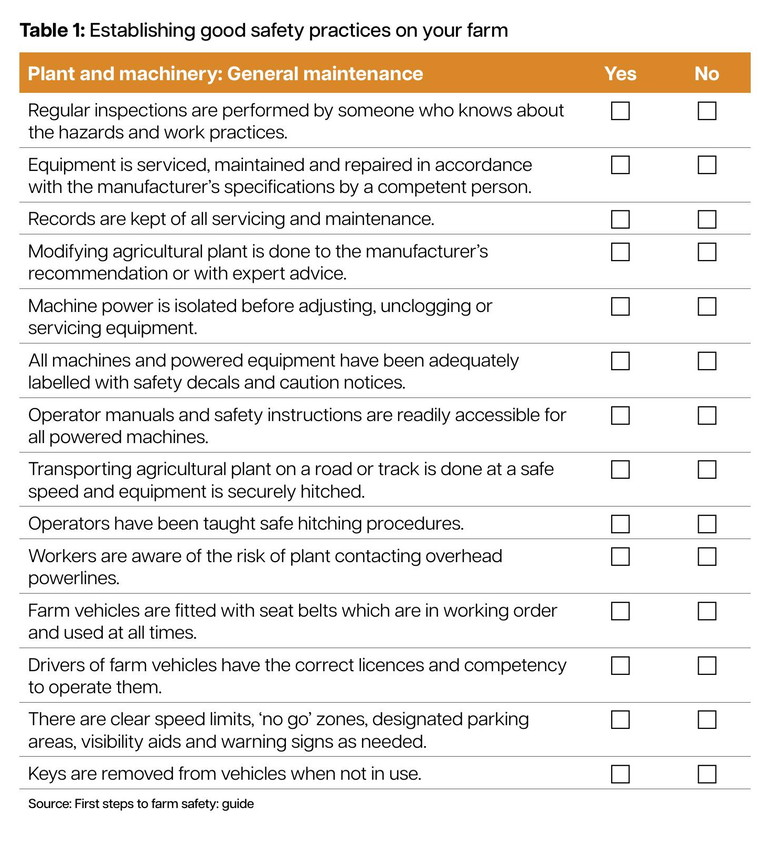WA CITRUS health and safety
Catch up on
WORKPLACE
HEALTH AND
SAFETY
Growers are managing risks almost daily. For me this quarter, three topics on managing risks to WA citrus production businesses were in my diary — agricultural safety, reducing our greenhouse gas emissions and adapting to climate change.
Words Bronwyn Walsh, Industry Development Manager, WA Citrus
FOR this edition I’ve included information on agricultural safety as a refresher of the resources available to support your business to manage workplace health and safety risks.
There may be a window of time, once the crop has been fed and the pests have been dealt with, to revisit where your business is at on the WHS front.
Reducing risk to growers and workers
Celebrating Safe Work month, WorkSafe WA hosted an agricultural safety forum in Bunbury, on October 25th. Over a couple of hours, we heard some very practical information for managing risks on farm such as chemicals, electrical, vehicles, machinery, family and visitors.
Safety on farms has become even more important as the WA WHS Act (2020) and Regulations (2022) mean industrial manslaughter laws have significant penalties, including considerable imprisonment terms and millions of dollars of fines. In addition, insurance will no longer cover penalties, meaning that anyone conducting a business undertaking is responsible for financial penalties.
This becomes even more relevant when figures show agriculture has the highest number of deaths and serious injuries of any industry in WA.
Some figures from the KidSafe presentation on farm injuries report were:
- 35 per cent of children were between 10–14yrs
- 58 per cent of children injured on a farm were male
- Top causes of injury —falls and transport injuries e.g. quad bikes, horses

WorkSafe WA hosted an agricultural safety forum in Bunbury, on October 25th.
Fortunately, growers have not been left out in the cold to deal with providing a safe place of work that complies with work health and safety legislation.
Some of the key takeaways from the event for me were:
• Building on what growers already do on-farm, WorkSafe WA has developed resources and information available on their website, some of which were available at the event in October.
• As a visitor to many farms now and a few when I was growing up, I know how exciting it is to be out and about on a farm. As a visitor I can’t be aware of some of the hazards. The speaker at the forum provided some easy signals to setup for visitors, children and workers to easily identify hazards and prevent injuries. This included hazard tags, signs and even using ‘WorkSafe’ as the ‘bad cop’ when having to tell visitors, ‘The Rules’.
• Helen Newman, our biosecurity officer, introduced us to an online induction for biosecurity that we can use for visitors, either before turning up at the farm or on arrival. Similarly providing inductions to workers and visitors are tools for preventing injuries. FarmSafe Australia, general Induction Tool.
• First steps to farm safety: guide provides you with a foundation for establishing good safety practices on your farm (see Table 1). The checklists in this guide are not extensive and cover key points to get you started. You will need to build on these points by considering what may be relevant or specific to your farm and your farming activities.

• Paddock Practices: Everything you wish you knew about farm safety in WA — GRDC, from 2023, an explanation and compilation of resources related to WHS incl. apps, training programs, FAQs.
• Poster on quad bike safety www.commerce.wa.gov.au/ publications/quad-bikes workplaces-guide
• Practical guidance on how to guard machinery www.commerce. wa.gov.au/sites/default/ files/atoms/files/221185_cp_ manageriskplant1.pdf
• SmartMove — prepares young and new workers — https://smartmove.safetyline.wa.gov.au
• WorkSafe — www.worksafe.wa.gov.au – sign up to Farm Safety news alert on their website
• SafeFarms WA and ProcessWorx were a couple of organisations at the event that can support your business with your WHS.
• Apps to assist in record keeping and tracking For growers that have had WorkSafe visit their orchards, although another imposition on their time and more paperwork, they found the visit helpful for providing a focus on WHS.